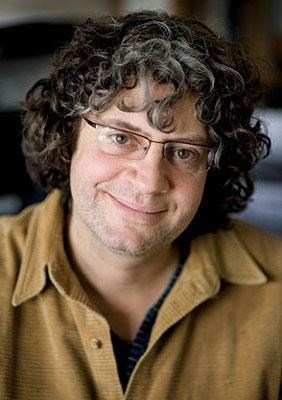Professor of Economics Daniel Barbezat, who was recently named executive director of the Center for Contemplative Mind in Society, writes about the books on his figurative bedside table.
 |
Though there doesn’t seem much theme in these variations, here are some of the books I’ve read recently.
The tragic and comic hijinks of the current political cycle and my own bleak vision of the political landscape led my friend Dix McComas to suggest (demand) that I read All the King’s Men, Robert Penn Warren’s elegantly descriptive novel of personal and political vision and collapse. The amazing narrative voice of the character Jack Burden and his vivid descriptions of human folly, passion and negotiated conviction are painfully contemporary. Though told in the vernacular of the pre-civil-rights South, the story and insights are crisply relevant today and a timeless read on human nature.
Having heard so much about it, I read The Professor and the Madman: A Tale of Murder, Insanity, and the Making of the Oxford English Dictionary. The sensational aspect of the story is rather overwrought, but the opportunity to learn about Professor James Murray makes this quick read worthwhile. Murray, appointed head of the OED project, stated in response to his acclaim, “I am a nobody ... treat me as a solar myth, or an echo, or an irrational quantity, or ignore me altogether.” Though the “madman,” Dr. W. C. Minor, get most of the dramatic emphasis, Murray’s story is compelling, as is the book’s description of the development of what we know as “dictionaries.”
Another book I’d heard of often is Paramahansa Yogananda’s Autobiography of a Yogi. Frequently a fantastical tale of supernatural events, it is nevertheless filled with insight and a description of yoga’s spiritual foundations. With today’s emphasis on yoga’s physical aspect, it is easy to lose sight of the original intention of yoga as spiritual practice. In reading this book, I was aware, at times, that I was plowing through “a classic,” but it was a wonderful tale of devotion, lived intention and faith.
On a very different note, I just finished Gad Saad’s Consuming Instinct: What Juicy Burgers, Ferraris, Pornography, and Gift Giving Reveal about Human Nature. This is indeed a fun read, filled with lots of research and some rather zany examples of our evolutionary heritage, such as the extensive evidence that males’ ring-finger-to-index-finger-length ratio (a product of prenatal hormone levels) predicts, rather neatly, relative success in all kinds of competitive environments (World Cup soccer, commodity trading, etc.). Saad shows that our desire to display reproductive fitness and our fear of mortality can, without the appropriate awareness, play large roles in our consumption patterns. Though pushed a bit far, the cited research is compelling, and I find myself seeing the results all around me.
Photo by Samuel Masinter ’04